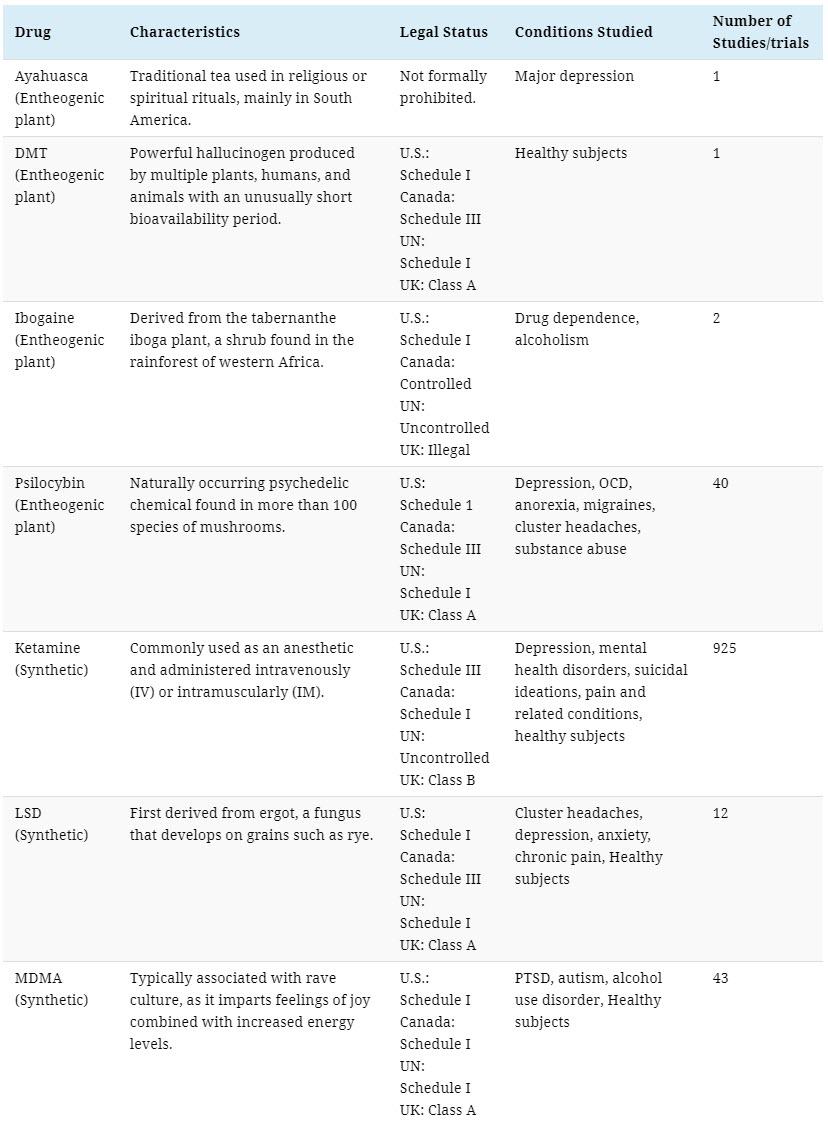Fueled by a slew of new research, psychedelics may hold the key to treating a multitude of debilitating disorders such as addiction, PTSD, and depression.
But as an industry that has laid dormant for decades, Visual Capitalist’s Katie Jones explains below that it will need to shed its negative connotations that have limited its potential and undermined new discoveries for so long.
The infographic below showcases data from The Report on Psychedelics which explains seven of the most common psychedelic substances and examines the many mind-bending ways they could radically transform mental health as we know it.
Resurrecting a Stigmatized Industry
Although evidence of humans using psychedelics as medicine dates back thousands of years, it was not until the 1940s that psychiatrists became advocates of their therapeutic potential.
Unfortunately, recreational psychedelics became a symbol of the 1960’s counterculture movement, which contaminated the industry’s reputation. The U.S. responded by introducing the Controlled Substances Analogue Enforcement Act, deeming these drugs illegal and stymying research studies in the process.
Following some new discoveries in the early ‘90s however, psychedelics moved from the hands of festival-goers back to the labs of scientists. Since then, certain substances such as psilocybin have been granted breakthrough therapy status for treating depression by the U.S. FDA.
With these recent developments, new companies and investment opportunities are beginning to emerge in the psychedelics space. But these complex drugs are not always easy to understand—so let’s dive in.
What are Psychedelics?
Psychedelics are psychoactive substances that can alter perception, mood, and cognitive processes. There are two broad classifications of psychedelics that relate to chemical structure.
- Entheogenic Plants: Plants or fungi that produce chemical substances that can cause hallucinations
- Synthetic Drugs: Drugs created in laboratory setting to mimic the effects of entheogenic plants
Here are seven of the most common psychedelic substances explained:
With sound scientific evidence and standards coming into place, it’s no surprise that investors—from bestselling author Tim Ferris to several established cannabis companies—are supporting the born-again industry.
Given the industry’s foothold in recreational use, a therapeutic comeback may be a tough pill for many to swallow. However, it is possible that we are on the precipice of not only a psychedelic revolution but more importantly, a mental health one.
“Psychedelics, used responsibly and with proper caution, would be for psychiatry what the microscope is for biology and medicine or the telescope is for astronomy.”
– Stanislav Grot

